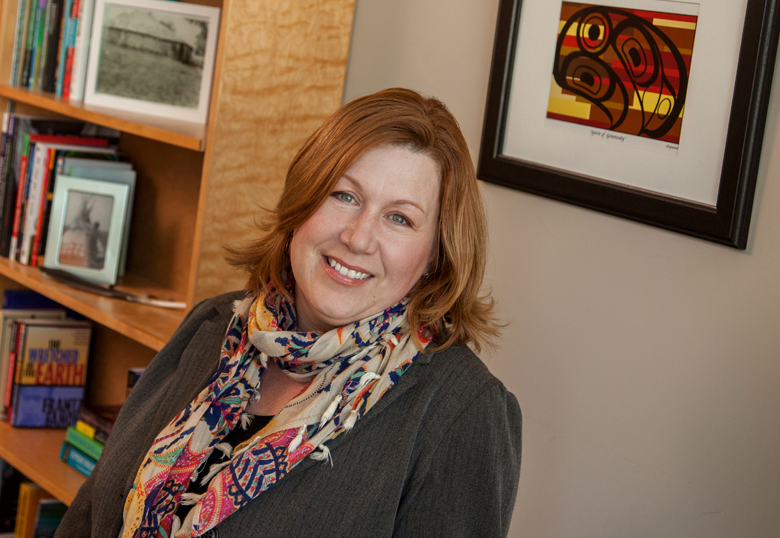Dr. Cheryl Currie awaited the release of the 2014 United Nations report on the human rights situation of Indigenous peoples in Canada with tremendous interest. An assistant professor of public health at the University of Lethbridge and the recently appointed Translational Health Chair in Aboriginal Health and Wellness with Alberta Innovates Health Solutions (AIHS), the findings of the UN study were significant for Currie in a way that only someone who has dedicated her professional life to partnering with Aboriginal people to improve health can appreciate.

The contents of the report weren’t a surprise. Currie is aware the well-being gap between Indigenous and non-Indigenous people in Canada is not narrowing. Yet despite the UN’s findings (or perhaps partly because of them) Currie is convinced that the lives of Canada’s Indigenous people are on the precipice of change – that the climate for collaboration between all interested parties is highly favourable, and that research and education in the area of Aboriginal health and well-being are set to take off in an impactful way.
Currie herself is determined to help make change happen.
As the Translational Health Chair with AIHS, Currie will work side-by-side with Indigenous Canadians to understand issues surrounding Aboriginal wellness, and develop evidence-based interventions that address community-identified areas in both rural and urban environments.
“If we’re going to adequately address issues of health and well-being, we need to first know where to focus our attention,” says Currie. “Where are the gaps in knowledge? Where are the gaps in service? The UN report clearly states we are not making the strides we should be toward improving the well-being of Indigenous Canadians. In my new position I will be working to address these gaps.”
Currie’s research for AIHS will focus on three main areas: 1) developing evidence-based interventions that address mental health, substance use, suicide and other issues identified by communities, 2) developing a more robust understanding of the determinant of Aboriginal health, and 3) emphasizing interventions that promote the strengths of Aboriginal peoples and communities.
Currie says the key to more effective solution finding is to change our perception of the problem.
“It’s as though the non-Aboriginal population has been holding a mirror up and telling Indigenous populations to look at themselves and make changes. What we need to do at this point is turn the mirror around. What are non-Aboriginal people doing to perpetuate the problems and obstacles that Aboriginal people continue to face? What can Aboriginal and non-Aboriginal Canadians do together to improve the situation?”
Currie’s passion for Indigenous wellness was ignited while working with urban and rural Aboriginal communities in both Manitoba and Ontario during her training at the University of Manitoba. She went on to earn a PhD in public health at the University of Alberta, focused on protective and resilience factors for health within urban-based Aboriginal populations. Currie became an assistant professor at the U of L in 2012, and was awarded the AIHS Chair position in 2014.
Currie says that the U of L is exactly where she wants to be because the University’s commitment to Aboriginal initiatives has been stalwart from the start.
“The U of L has a strong interest and focus on Indigenous peoples and communities, both currently and historically,” says Currie. She’s thrilled about the new Aboriginal health degree program that will launch in the Faculty of Health Sciences in September 2015, and believes the U of L can play a key role in building partnerships and strengthening relationships between Aboriginal and non-Aboriginal communities nationwide.
Two published studies by Currie indicate that there’s a long way to go toward equalizing opportunities and overall wellness for Aboriginal people. Her research highlights the protective impacts of Aboriginal cultural continuity on health. Her research also indicates that discrimination directed toward Indigenous people in Canada is extremely high, and that the trauma of these ongoing experiences impacts mental health and results in considerable psychological distress. Still, Currie believes that change is possible and the climate in Canada is now ripe for it.
“It’s time to start looking at factors that contribute to Aboriginal wellness; to take the “risk factor” approach we’ve utilized in the past, flip it around and highlight things that actually have a positive impact on the lives of Indigenous people,” says Currie. “This is an exciting time. The stage is set for change, and I’m ready to go to work.”
